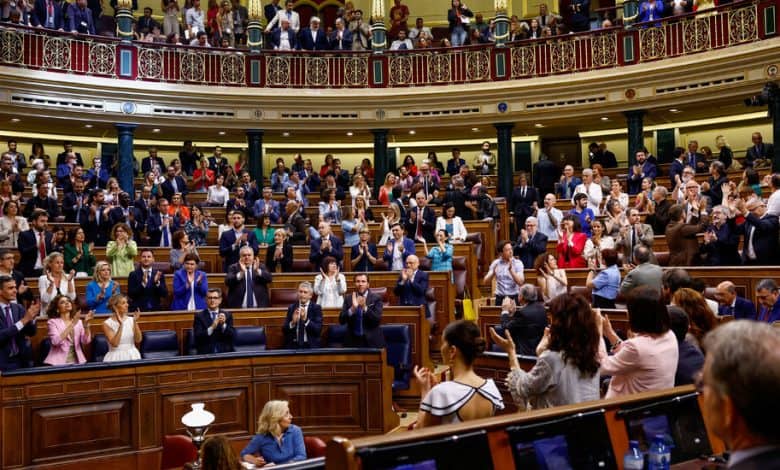Spain Approves Amnesty for Participants in 2017 Catalan Independence Vote

Spain’s Parliament approved a landmark law on Thursday that grants amnesty to Catalan separatists involved in the illegal October 2017 independence referendum, a reprieve that could apply to hundreds of people, including Carles Puigdemont, the former Catalan leader who has been living in self-imposed exile for seven years.
The measure had met with resistance from opposition parties in recent months, and led to widespread anger and huge demonstrations in cities around Spain, with opponents denouncing it as a ploy by Prime Minister Pedro Sánchez to remain in power. Mr. Sánchez brokered the amnesty deal with the Catalan separatist party Together for Catalonia after his own party fell short of a majority in last July’s general elections.
Cries of “traitor” could be heard from several lawmakers in Parliament when Mr. Sánchez cast his vote on Thursday.
Spain’s judges now have two months to apply the new law, although its opponents vowed to continue trying to block it. Some argue that the measure violates the Constitution’s principle of equality because it is unfair to other people facing legal proceedings.
The regional president of Madrid, Isabel Ayuso, said in a radio interview on Thursday that her government would take steps to hinder implementation of the new law and present an appeal to the Constitutional Court.
Pablo Simón, a political scientist at Carlos III University in Madrid, said that judges could also bring legal challenges if they considered granting general legal amnesty to be discriminatory.
“Each judge has different criteria,” Mr. Simón said, adding that they could also appeal for intervention from the European Court of Justice “if they consider that giving a general legal pardon is discriminatory,” in which case “the law could be paralyzed.”
The amnesty law applies to people involved in the Catalan independence movement, which came to a head in October 2017, when the region’s separatist government, led by Mr. Puigdemont, ignored Spanish court orders and moved ahead with a referendum.
Numerous voters were injured by violent police intervention, and a declaration of independence followed the balloting — as did a crackdown by the Spanish government, which fired the Catalan government and imposed direct control. Nine political leaders were jailed for crimes including sedition, while Mr. Puigdemont fled across the border to France, and then to Belgium, narrowly avoiding arrest.
Although Mr. Sánchez’s government has already granted pardons to the political leaders and activists who were jailed, the amnesty goes a step further. It will dismiss cases against people who are facing prosecution on a wide range of charges, including misuse of public funds to finance the 2017 referendum; civil disobedience — for example, by teachers who opened schools to be used as polling stations; and resisting authority by participating in riots that prevented Spanish law enforcement from gathering evidence.
The only exceptions to the new amnesty legislation are cases relating to terrorism.
